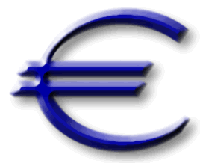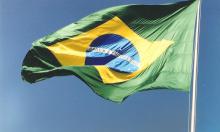EU officials celebrate Slovenia's transition to euro zone
Two weeks after Slovenia's smooth move into the group of nations that use the euro currency, top European Union officials are expected in Ljubljana on Monday to welcome the ex-Yugoslav country into the euro club.

European Commission President Jose Manuel Barroso, German Chancellor Angela Merkel - whose country currently holds the EU presidency - and European Central Bank President Jean-Claude Trichet are to attend the celebration, which falls on the 15th anniversary of Slovenia's independence.
The country of 2 million introduced the euro on Jan. 1, becoming the 13th nation to use the single European currency - and the only one of the 10 countries that joined the bloc two years ago so far to satisfy the economic criteria needed to join the euro zone.
The Slovene tolar was in use alongside the euro for only 14 days. From Monday, the euro is the only legal currency.
The European Commission said last week that Slovenes were already making nearly all cash payments in euros. Almost 80 percent of tolars had already been deposited with banks and withdrawn from circulation.
No notable problems were recorded, despite fears of massive price hikes. The Commission praised the country's government and banks, but also Slovenes' "positive spirit" toward the euro.
Many in Slovenia see the switch as a final step in becoming part of mainstream Europe, the AP says.
One group of people who do seem to be having problems with the new money are street beggars.
While the old tolar coins were of little value and people were glad to get rid of them, they have realized that euro coins - there are 240 tolars to the euro - have real value, "and they keep those precious little ones for themselves," complained Ales, 38, who begs in front of a store in downtown Ljubljana.
Slovenia swiftly turned to a market economy after gaining independence from communist Yugoslavia. It now has a 1.9 percent inflation - about the EU average - and its 4-percent economic growth exceeds the EU average.
The country also has a Western-style democracy and is to take over the EU's rotating presidency on Jan. 1, 2008.
In economic terms, the government said it expected no change with the switch to the euro, the AP reports.
The EU's economics commissioner, Joaquin Almunia, told Slovenia earlier to uphold its commitment to reforms so that it could fully enjoy the benefits of monetary union.
The euro was first adopted in cash form five years ago. It is now valued at about 1.3 dollars - up from 86 to 89 cents in 2002.
Subscribe to Pravda.Ru Telegram channel, Facebook, RSS!




